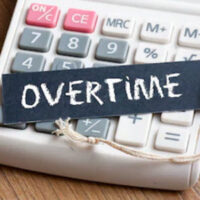FLSA and Overtime Pay: What is a Computer-Related Occupation?

Under the Fair Labor Standards Act (FLSA), employers are required to offer workers overtime pay—that is unless an employee’s position fits into one of several exemptions. One of the more complicated, misunderstood exemptions to the FLSA’s overtime rules is the ‘computer-related occupation’ classification. Here, our Miami employment law attorneys explain what employers and employees need to know about these rules.
What is a Computer Professional? Understanding the Primary Duties Test
Over the past few decades, technology has dramatically transformed the American workplace. Many employees use a computer for some (or even most) of their job. However, using a computer does not make one a ‘computer professional’ for the purposes of the Fair Labor Standards Act. To qualify as overtime exempt under federal law, an employee’s primary occupational duties must involve one or more of the following:
- The application of systems to determine the functional specifications of hardware or software;
- The development or design of computer systems or programs; and/or
- The testing, creation or modification of computer hardware, software, or programs.
The language is somewhat vague and it can be relatively challenging to apply to the real world. In reviewing these cases and applying the law, courts have been clear: The computer-related occupation exemption is meant to be construed in a narrow manner. For an employee to qualify, they must use specialized knowledge in performing their job duties. The use of a computer is not itself a decisive factor. Additionally, the statute does not cover employees engaged in the manufacture or repair of computer hardware or related equipment. Instead, the employee must use specialized technical knowledge.
Degrees and Certifications are Not Required
Unlike many other provisions of the FLSA, the computer-related professional exemption does not require an employee to have any specific degree or certification. An employee who lacks a college degree or any other type of official certification can still be exempt from overtime regulations through this exemption—as long they satisfy the primary duties test. Their actual job duties matter, not their educational background.
Reminder: The Burden of Proof is on the Employer
One of the most important things that companies and workers need to know about the FLSA is that the law puts the burden of proof on the employer. In other words, it is not an employee’s job to prove that they are not a ‘computer professional’. If a South Florida employer wants to classify a worker as overtime-exempt for the purposes of the FLSA, that company or organization needs to be prepared to prove that their selected classification is appropriate.
Call Our Miami, FL Wage and Hour Lawyers Today
At Pike & Lustig, LLP, our Florida employment lawyers have deep experience handling FLSA claims. If you have any questions about the computer related occupation exemption, we are here to help. For a confidential consultation, please call us now. With office locations in Miami and West Palm Beach, we handle overtime pay cases throughout the region.
Resource:
dol.gov/agencies/whd/flsa
https://www.turnpikelaw.com/how-an-flsa-audit-can-help-protect-employers-from-liability/



